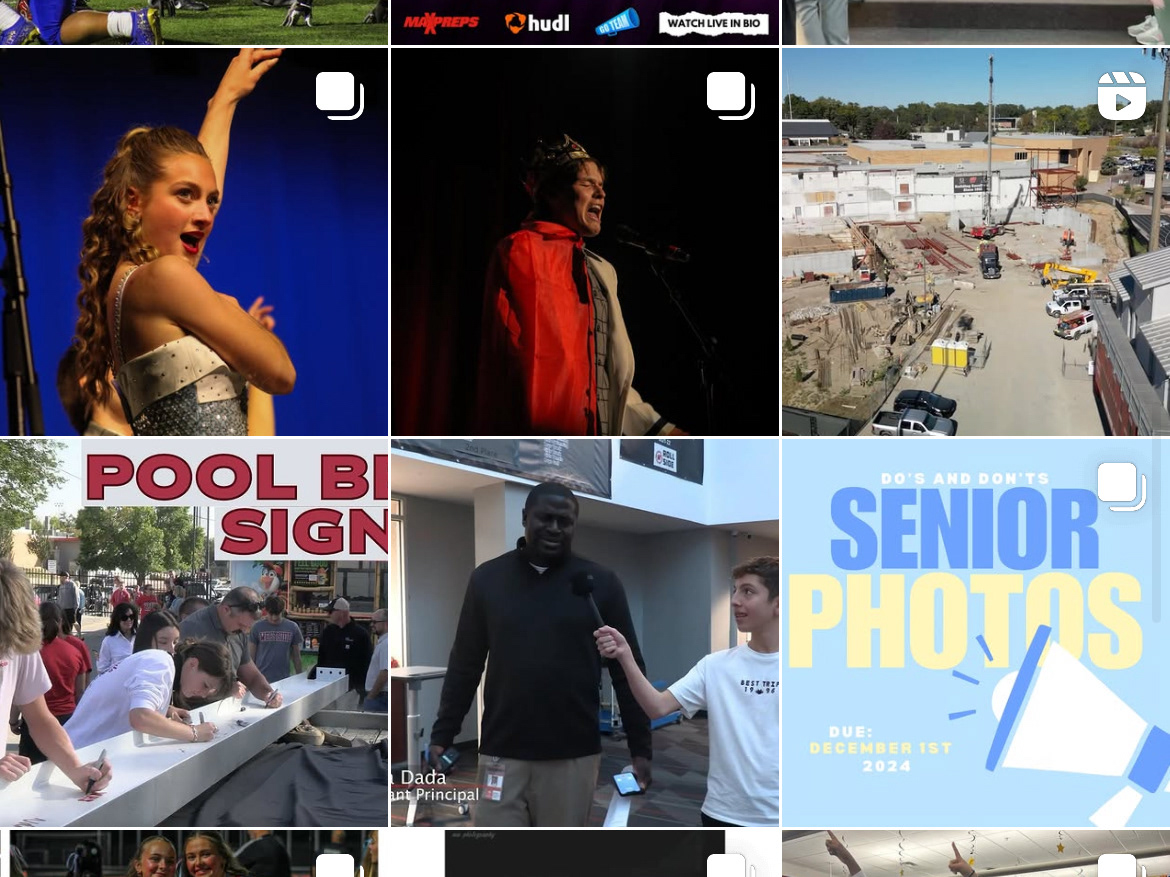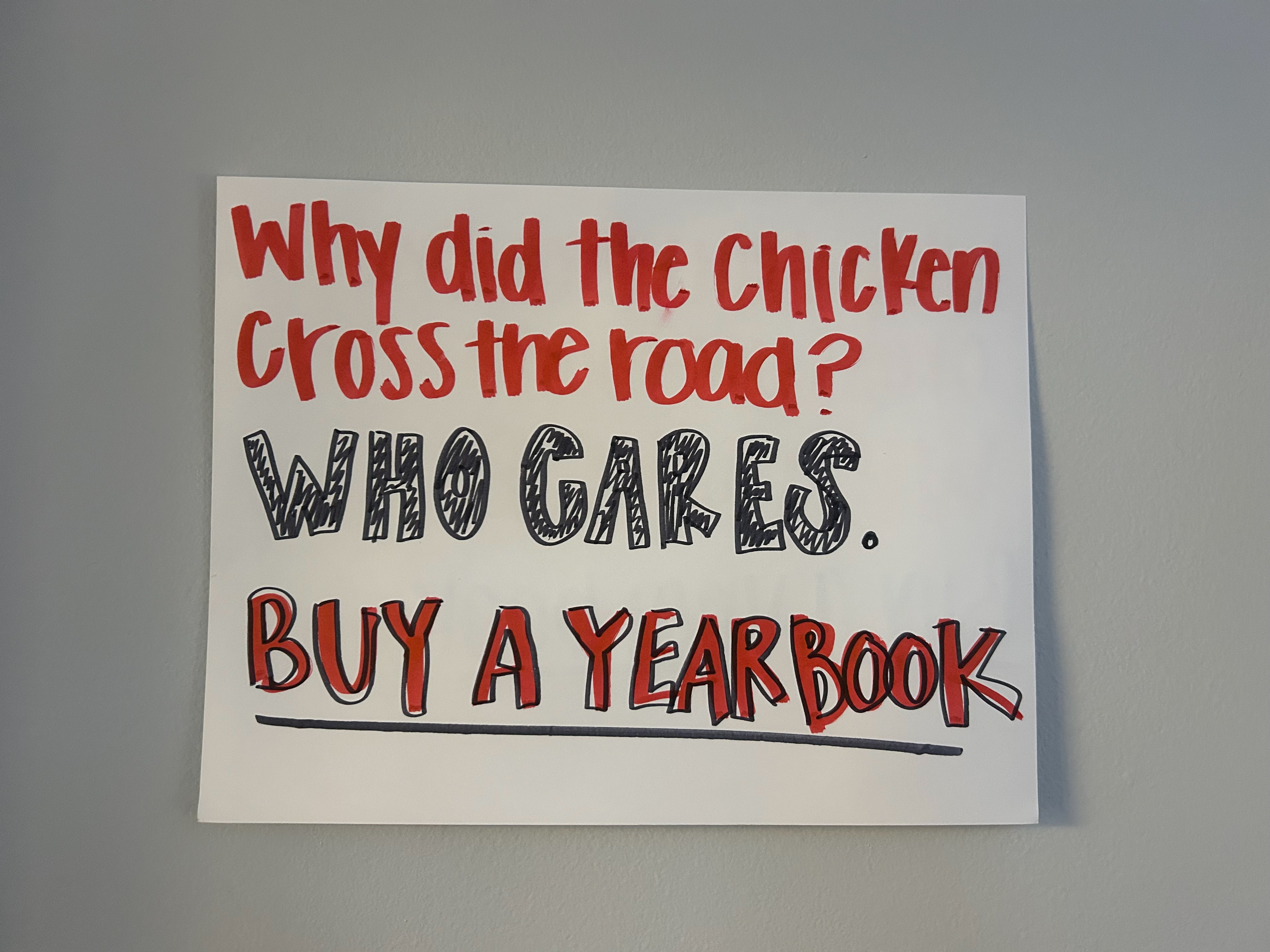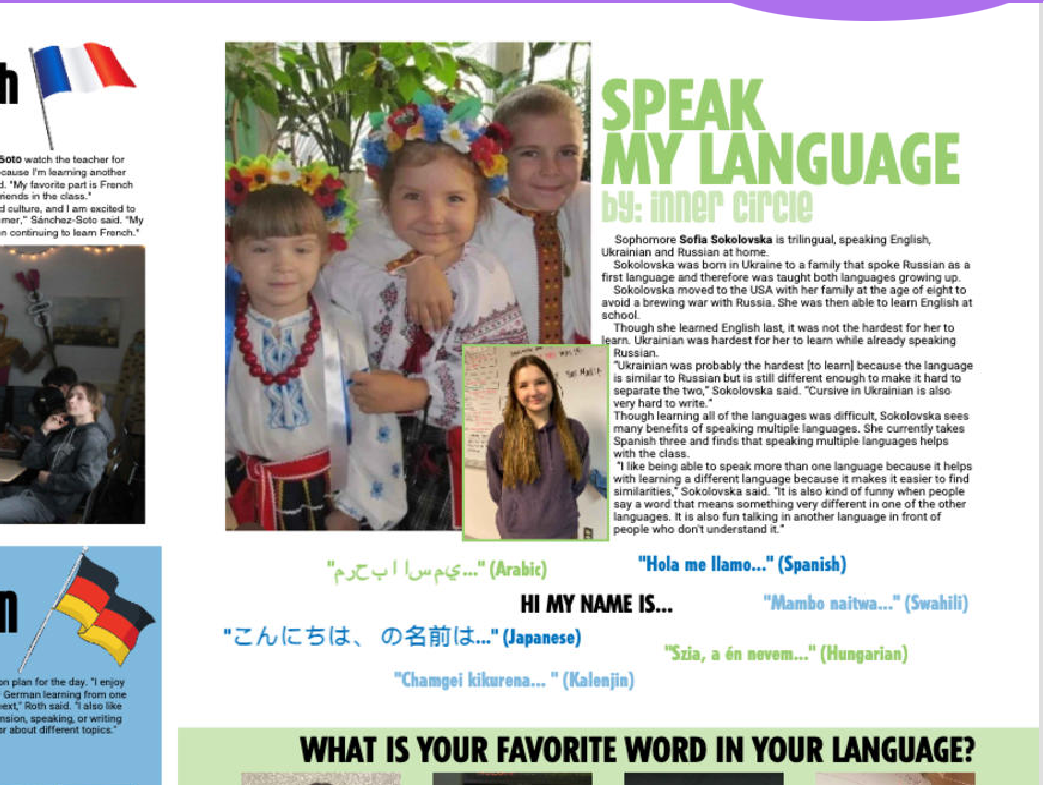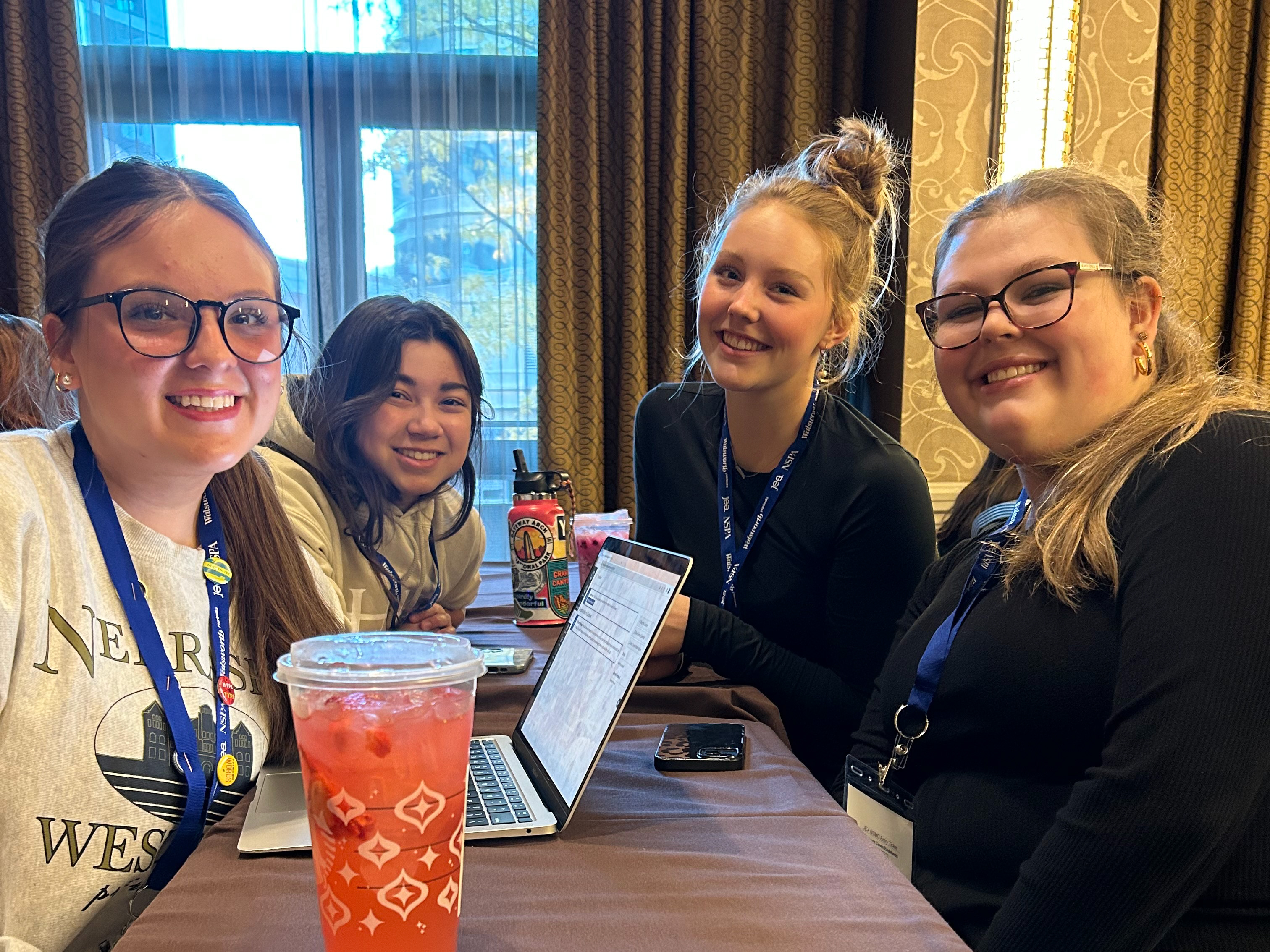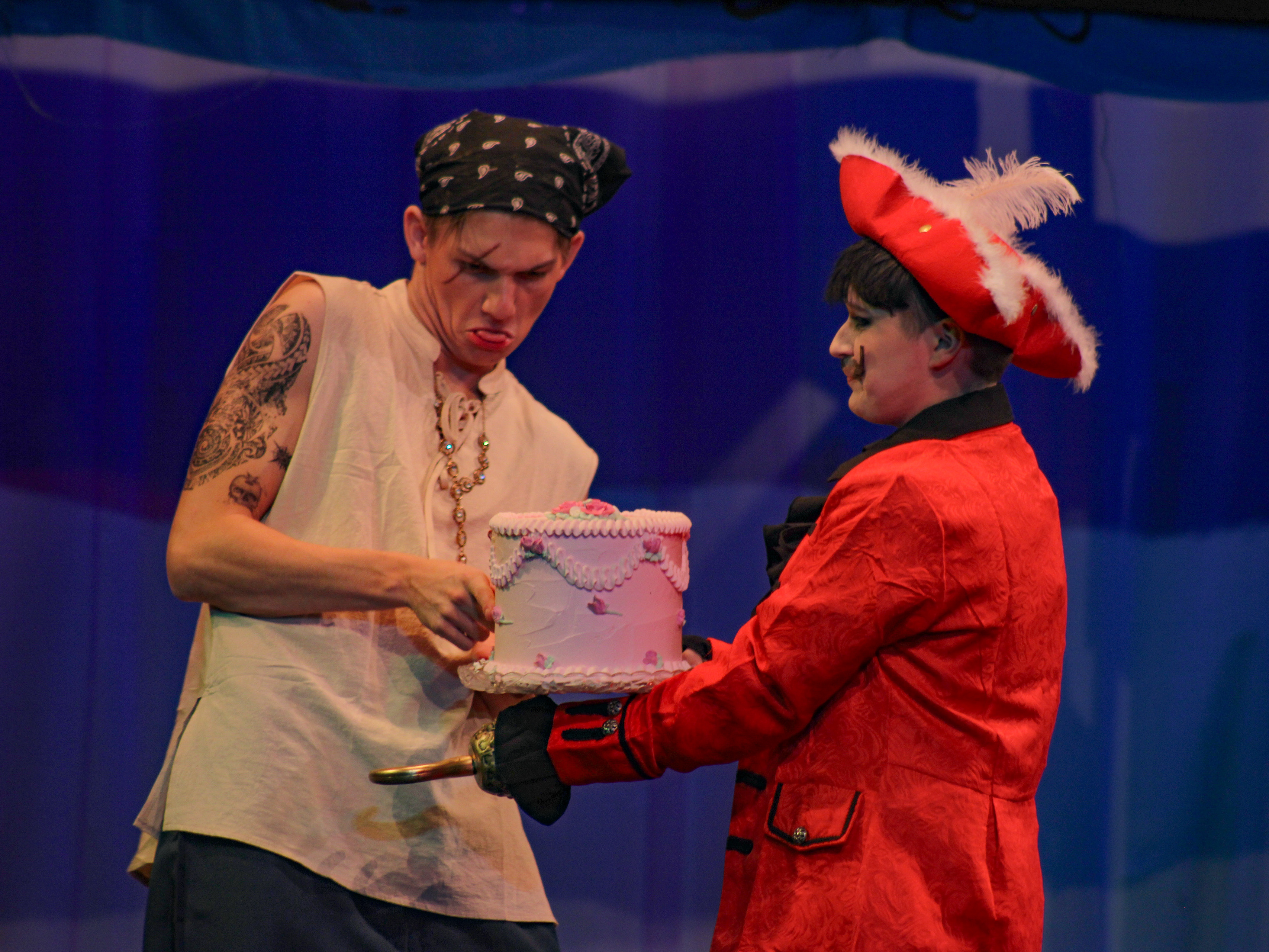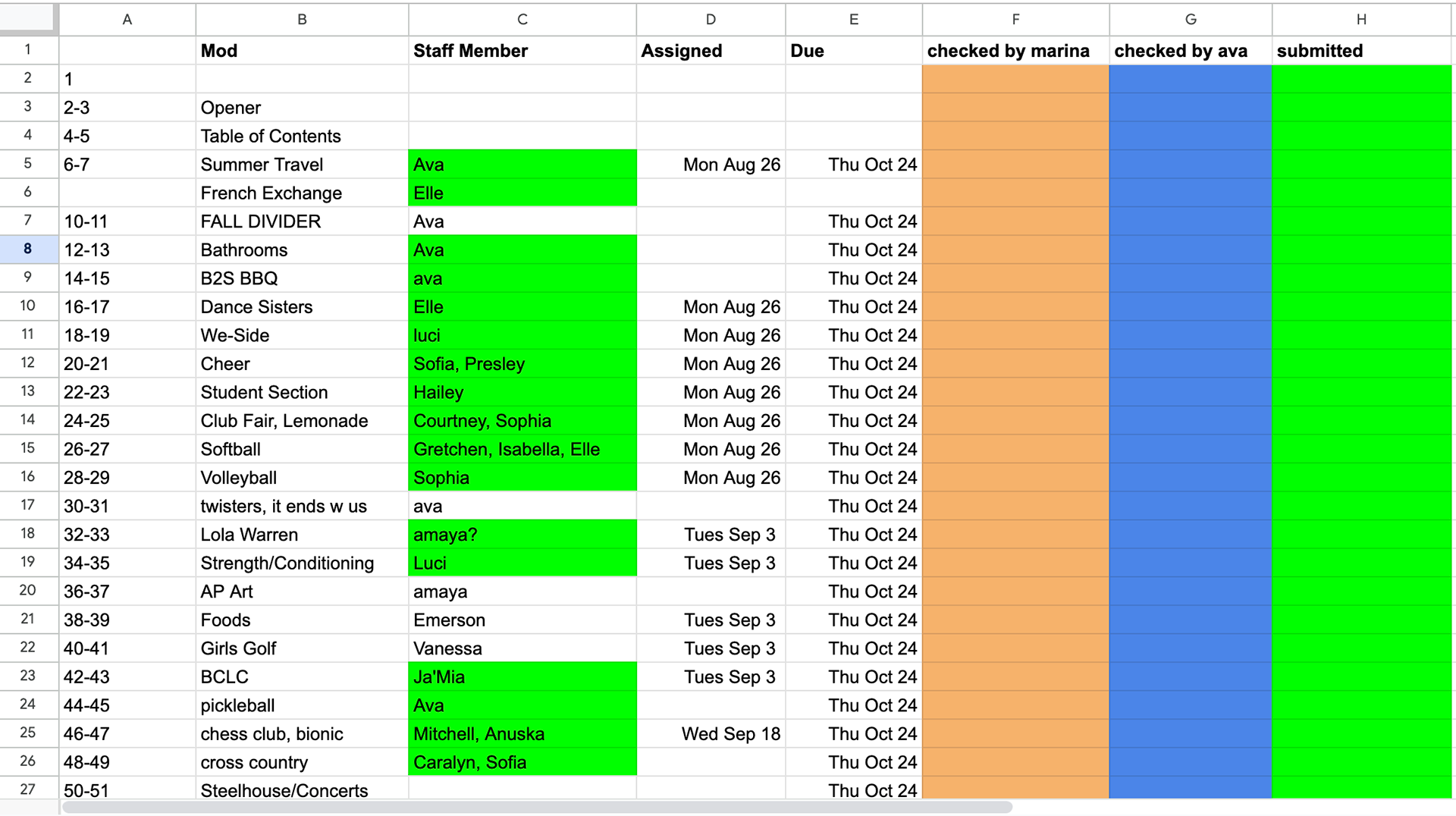
Making Our Voices Heard Yearbook spread, printed with written edits. The edits on this page are focused around copy. As the owner of this spread, I made a note to pay more attention to my copy when creating a spread.
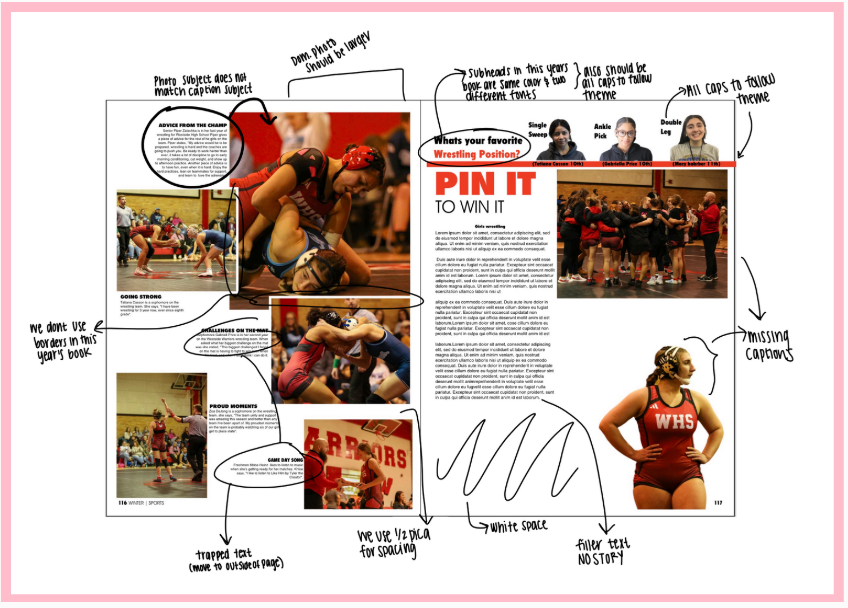
Before edits- Changes are annotated on the spread to clarify what needed to be changed.

After edits - Edits are annotate to show what was changed and why.

Before edits

After edits. I made story right aligned and moved captions around for better flow. I also changed some captions from being side by side to top and bottom for a clear distinction for which caption goes to which photo.


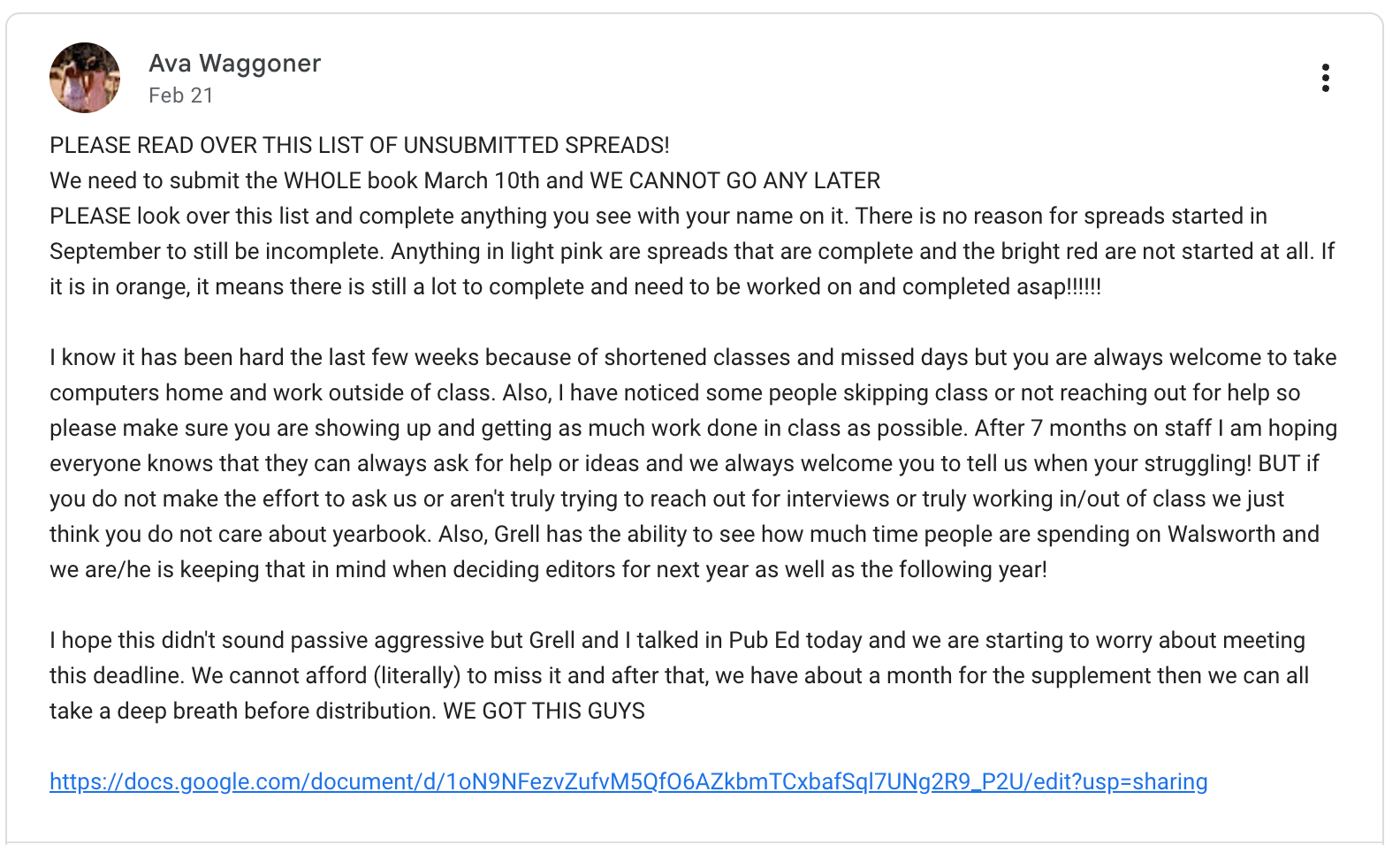

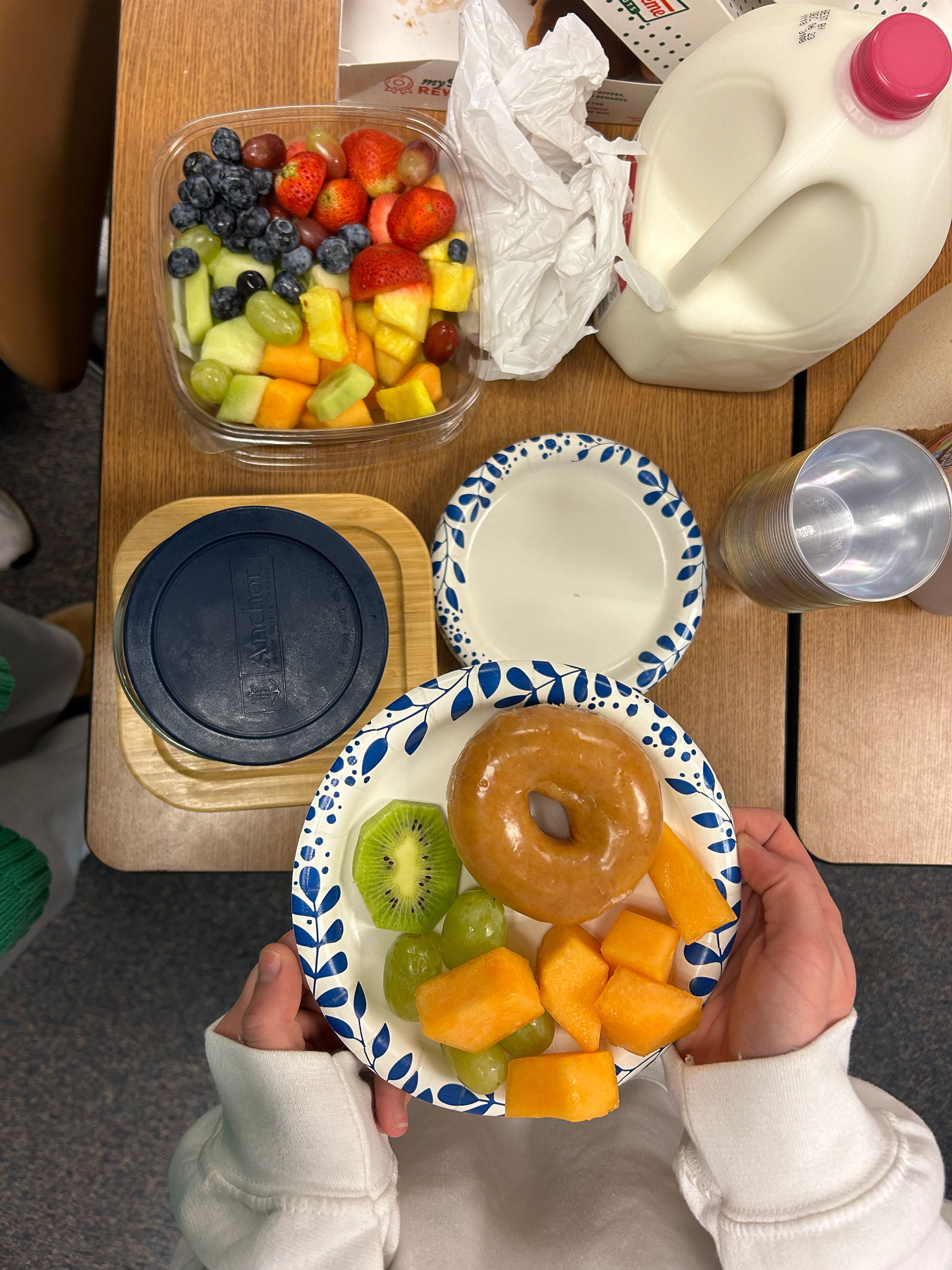
Yearbook Food Day
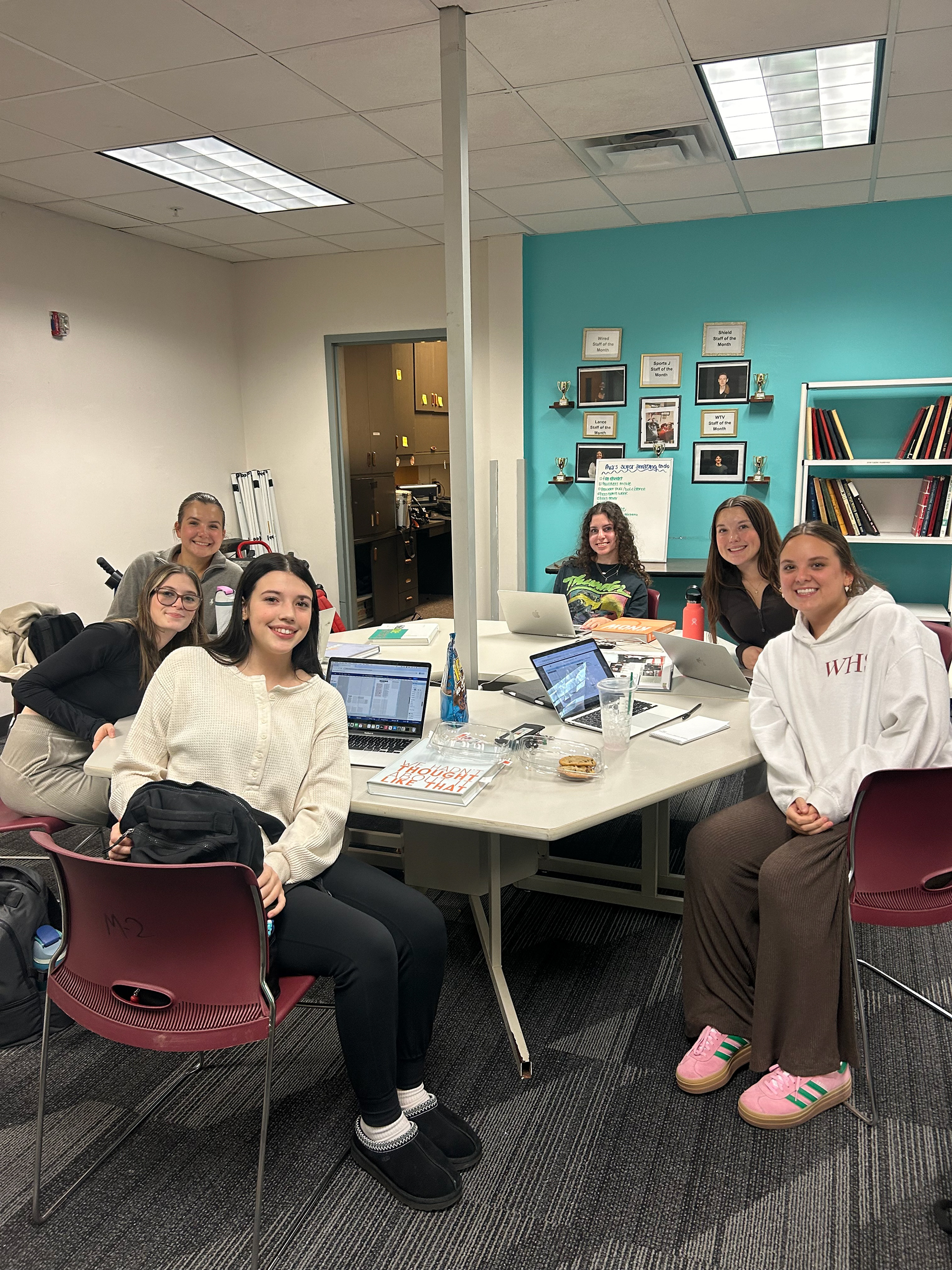
Yearbook Work Night
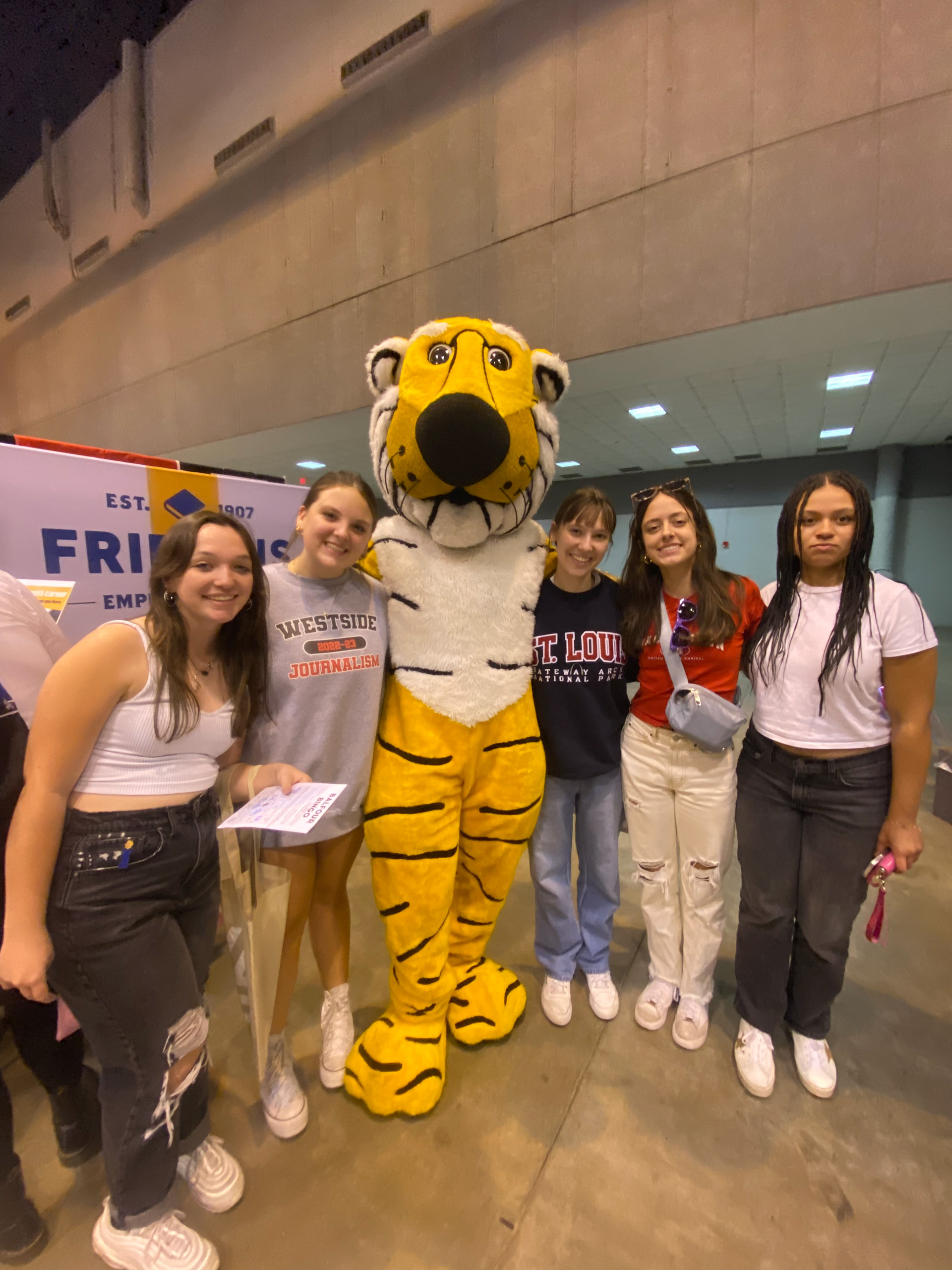
2022 St. Louis JEA/NSPA Mizzou Tiger

2023 San Fransisco JEA/NSPA
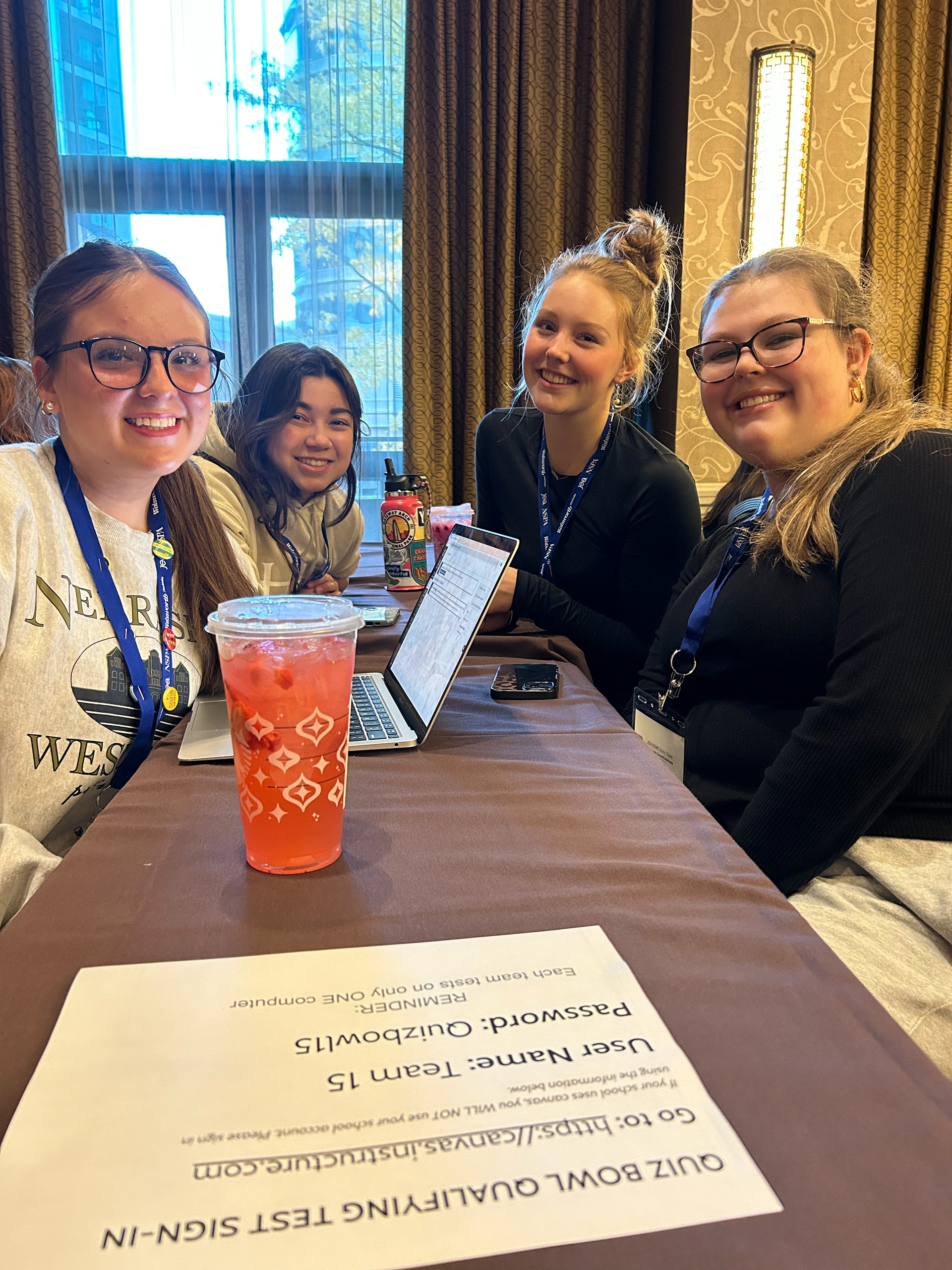
2023 Boston JEA/NSPA Quiz Bowl
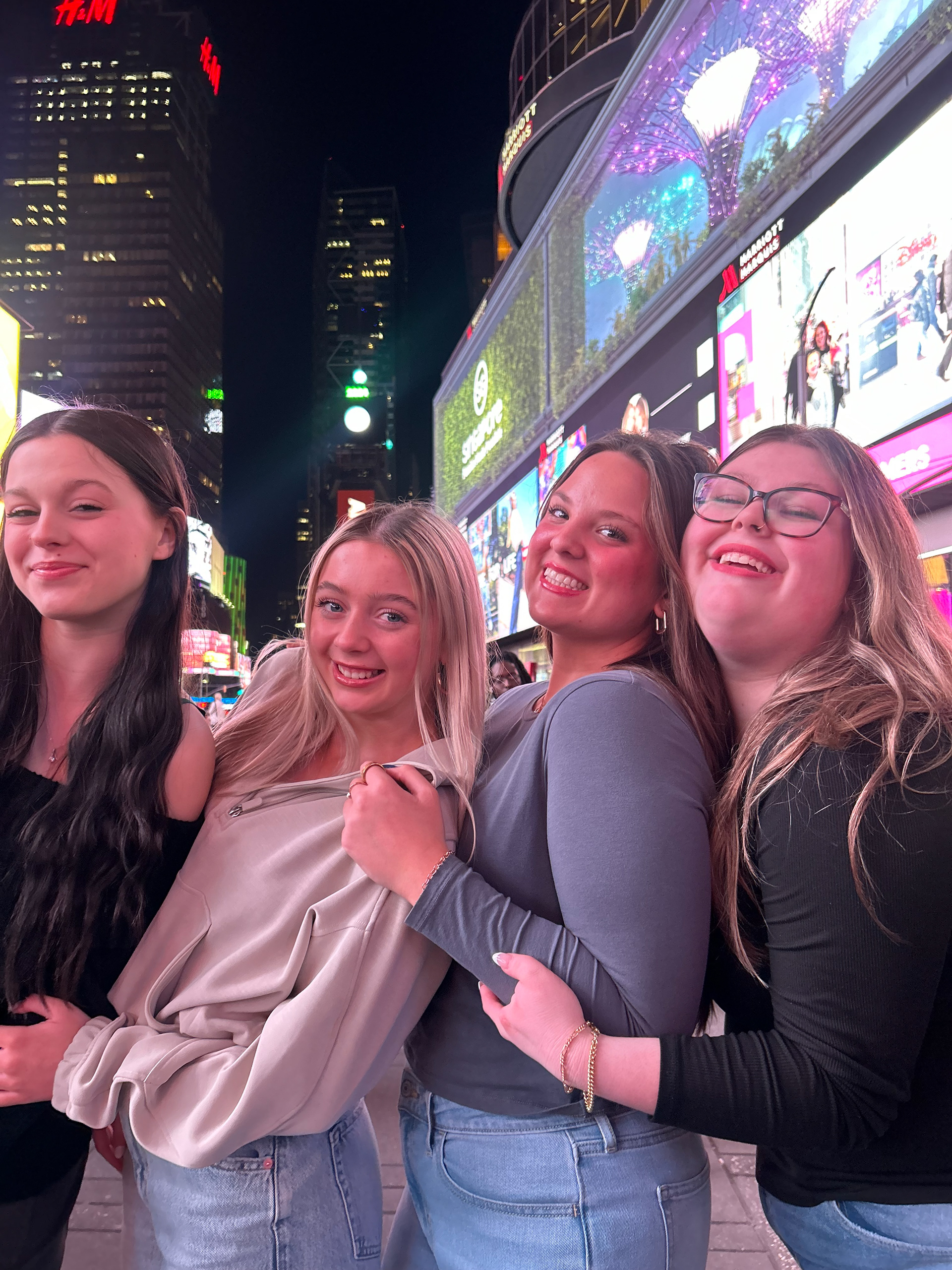
2024 Columbia, New York Crown Awards
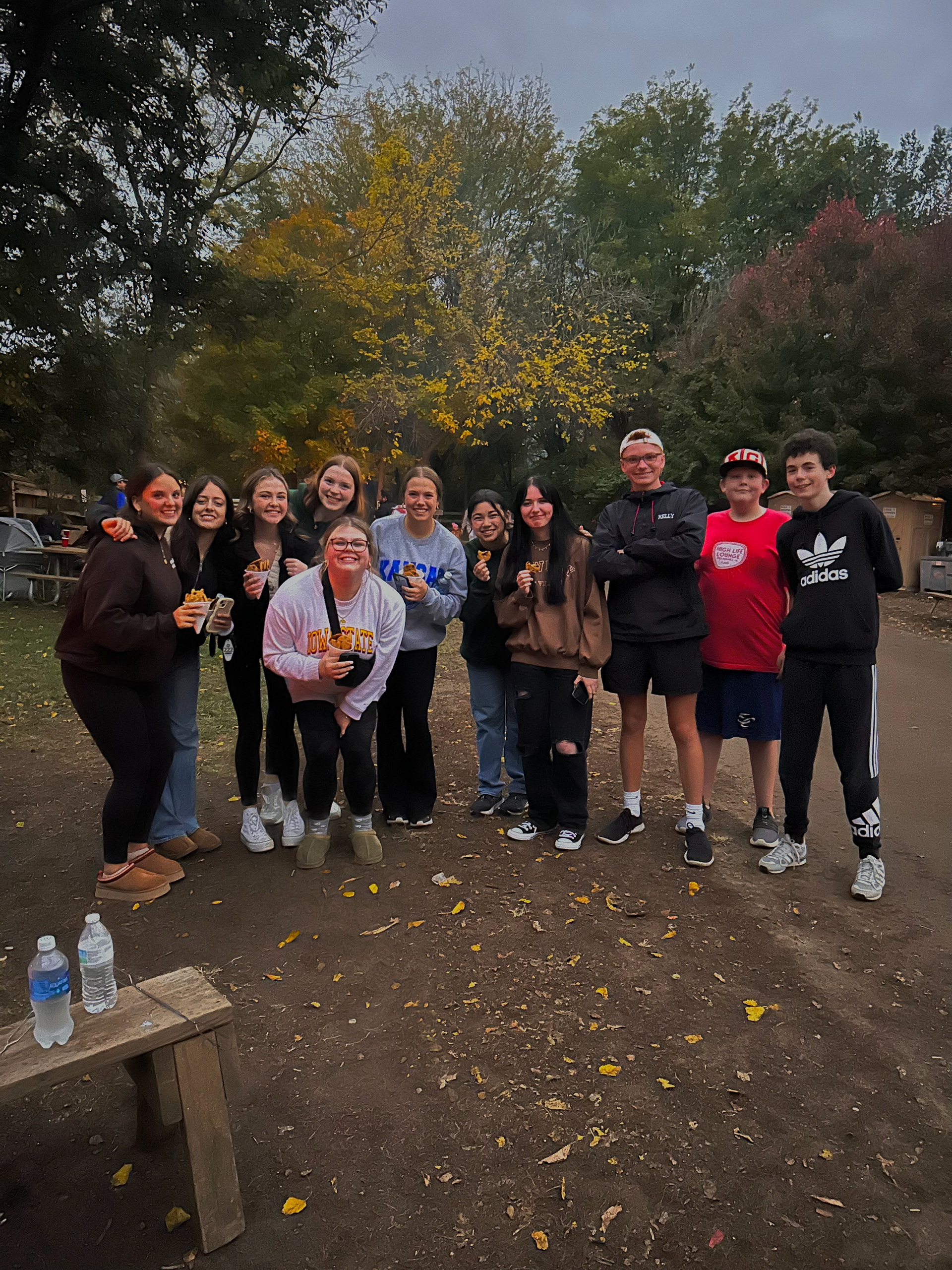
2023 Bonding - Some of the Shield, Wired, Sports J, Lance and WTV staff!

2023 Bonding - Some of the Wired, Shield, WTV and Sports J Edtiors
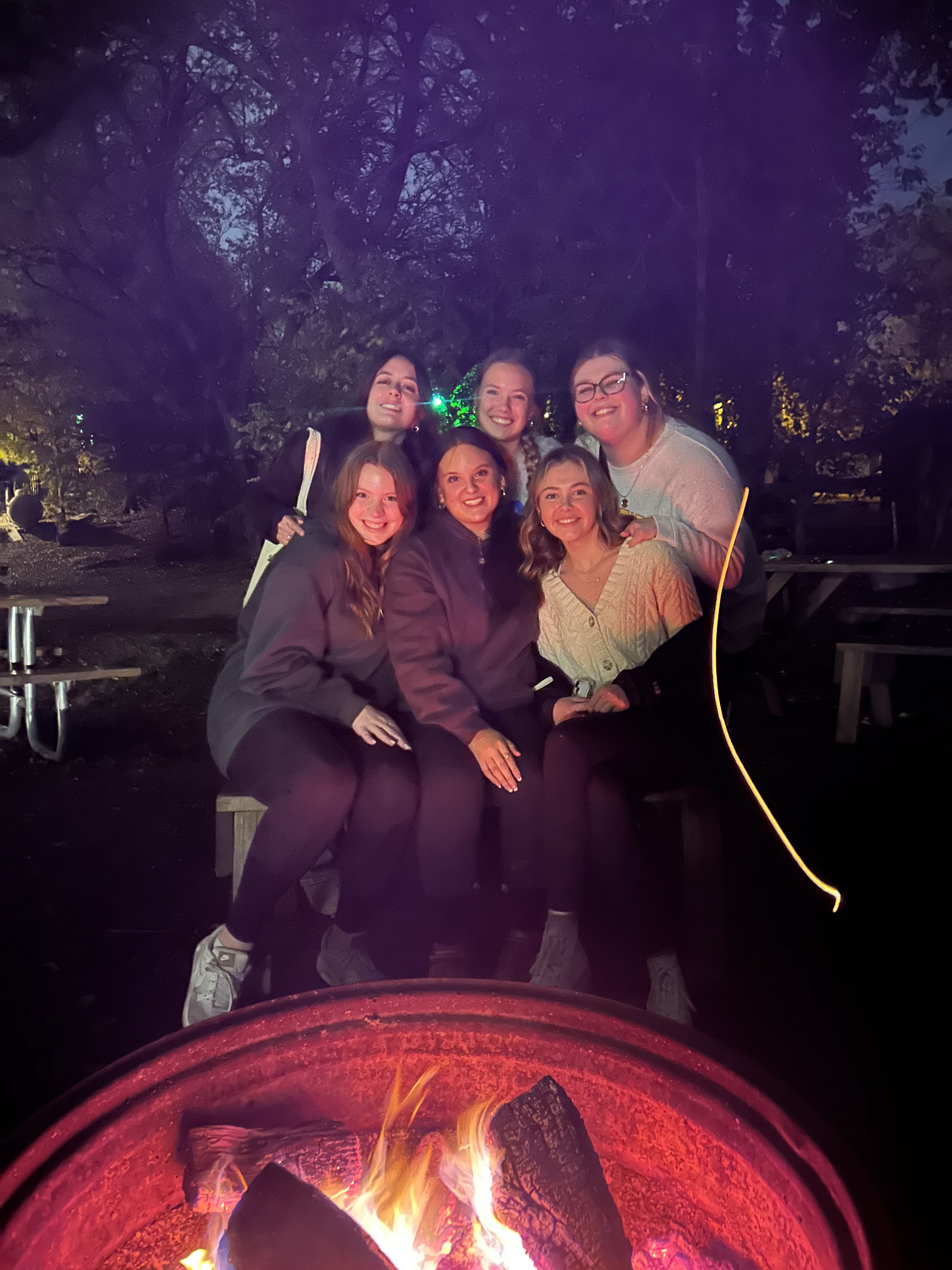
2023 Bonding

A fellow staff member and I holding the 'Shield Staff Member of the Year" plaque after both earning that title.

Fellow Wired Editor, Alex Ingvoldstad, and I pose with our awards at the end of the night.

